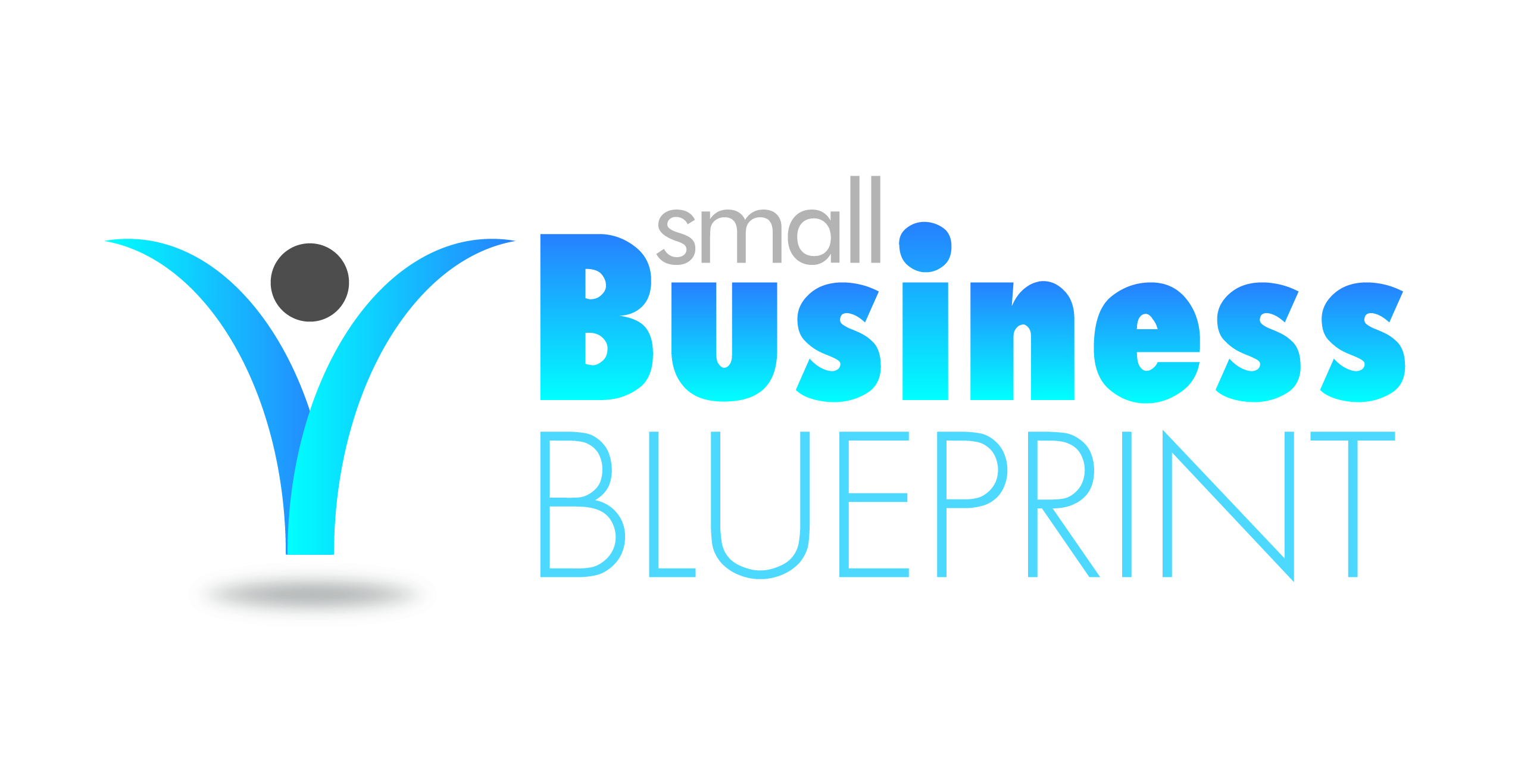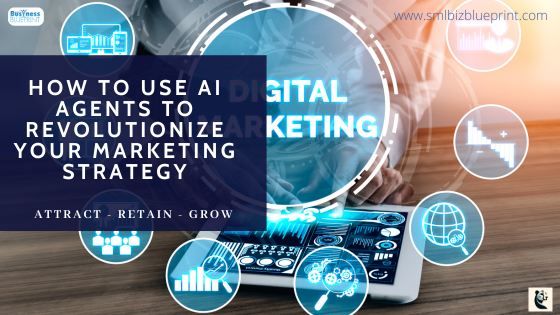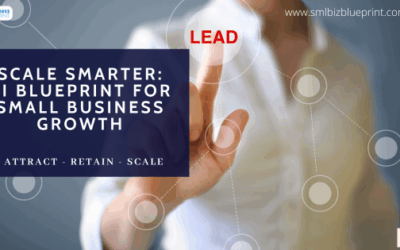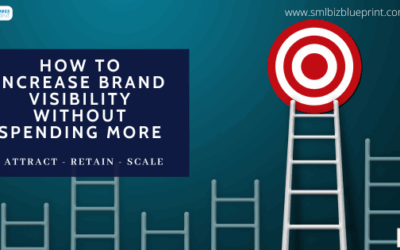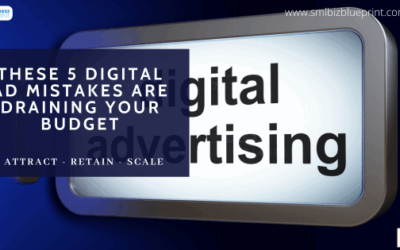Marketing is changing faster than ever, and businesses are under pressure to keep up with growing customer expectations while maximising return on investment.
Managing ad campaigns, engaging on social media, and personalising customer experiences can feel like an uphill battle—especially when time and resources are limited.
But what if there was a way to automate repetitive tasks, target the right audience more effectively, and analyse performance with greater accuracy?
Enter AI agents for marketing—the game-changers behind smarter ad campaigns and streamlined social media automation.
These powerful tools are already transforming how businesses connect with their customers.
According to Gartner, 80% of marketing technology will incorporate AI by 2025, highlighting its role in shaping the future of digital strategies.
In this post, we’ll explore how AI agents can revolutionise your marketing efforts by:
- Optimising ad campaigns to increase ROI.
- Automating social media scheduling and engagement.
- Delivering personalised customer experiences at scale.
- Providing actionable insights through advanced analytics.
If you’re ready to tackle the pain points of inefficiency, low engagement, and wasted marketing budgets, this guide will show you how AI can offer the remedy you need.
Let’s dive in and discover how AI agents can supercharge your marketing strategy.
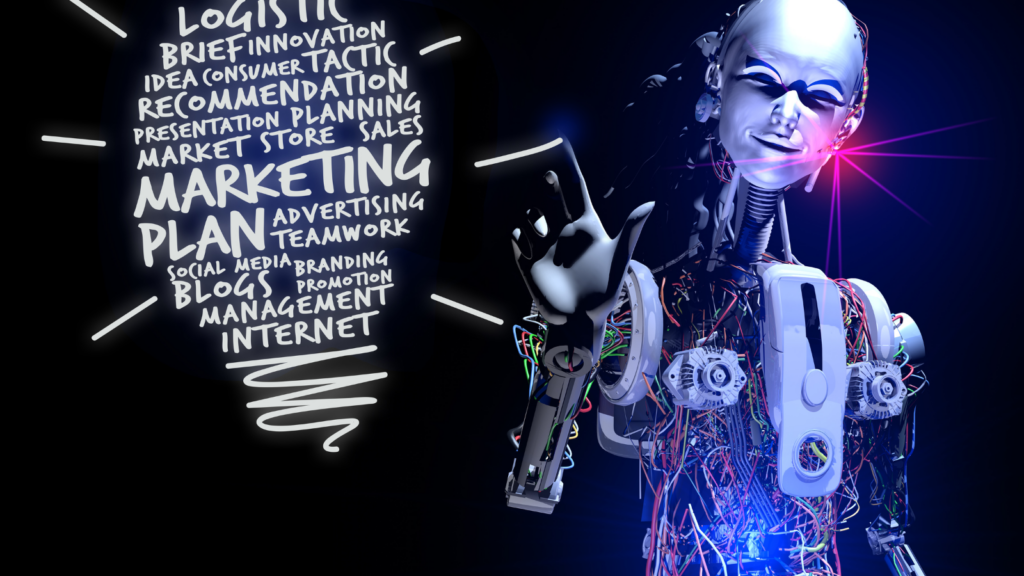
#1 What Are AI Agents and How Do They Transform Marketing?
Marketing today isn’t just about creativity but also efficiency, precision, and data-driven decision-making.
This is where AI agents step in to redefine how businesses engage with their customers.
But what exactly are AI agents, and why are they such a big deal in marketing?
At their core, AI agents are software tools powered by artificial intelligence and machine learning.
They’re designed to perform specific tasks, such as analysing consumer data, automating workflows, and delivering personalised content—all with minimal human intervention.
Think of them as your 24/7 digital marketing assistants, capable of handling the repetitive tasks that affect your team’s productivity.
How AI Agents Work in Marketing
AI agents use algorithms and data to learn from patterns, predict outcomes, and optimise processes.
For example, they can analyse customer behaviour across multiple touchpoints to determine the best times to launch ad campaigns or the type of content most likely to engage your audience.
Key functionalities include:
- Customer Data Analysis: AI agents process vast amounts of data to segment your audience and predict their needs.
- Task Automation: From scheduling social media posts to managing email campaigns, AI reduces manual work and human error.
- Personalisation: AI tailors marketing messages based on individual customer preferences, increasing the likelihood of conversions.
Why They’re Essential
The competitive nature of digital marketing demands speed and accuracy. AI agents make processes faster and smarter by providing insights that human teams may overlook.
This leads to better decision-making, improved ROI, and a more targeted approach to reaching customers.
Example
Take Netflix as an example. Its AI-powered recommendation engine analyses viewing habits to suggest content users are most likely to enjoy. This level of personalisation keeps subscribers engaged and has been a significant driver of the company’s success.
Similarly, marketing teams can use AI agents to personalise campaigns and build customer loyalty.
Tips
- Start Small: Begin with a single task, like automating email marketing, and scale as you become comfortable with the technology.
- Choose the Right Tool: Select AI agents that align with your business needs. For instance, use HubSpot for CRM automation or Jasper for AI-generated content.
- Leverage Free Trials: Many AI tools offer free trials. Experiment with different platforms to find the one that delivers the most value.
#2 Optimising Ad Campaigns with AI: Smarter Targeting, Better ROI
Running successful ad campaigns in today’s fast-paced digital landscape requires more than compelling visuals and catchy headlines. To truly stand out, businesses need precise, adaptive, and data-driven campaigns.
That’s where AI agents come in, transforming how marketers approach ad creation, targeting, and optimisation.
How AI Enhances Ad Campaigns
AI-powered tools bring unmatched precision to every stage of an ad campaign. These tools analyse vast amounts of data to identify trends, uncover audience insights, and predict what strategies will yield the highest return on investment (ROI).
Here’s how they make an impact:
Smarter Audience Targeting
AI algorithms analyse customer behaviours, demographics, and preferences to segment audiences effectively. By identifying high-value audiences, AI ensures that ads reach the right people at the right time.
Example: AI tools like Google Ads’ Smart Bidding adjust ad spending dynamically to target users more likely to convert, maximising ROI without manual adjustments.
Real-Time Campaign Adjustments
AI doesn’t just optimise campaigns during the setup phase—it monitors and adjusts them in real-time. If a particular ad set isn’t performing well, AI reallocates budget or tests new variations instantly.
Example: Facebook’s Dynamic Ads use AI to automatically display the most relevant product to users based on their activity, improving click-through rates (CTR).
Enhanced Ad Creatives
AI tools like Canva’s Magic Design and Adobe Sensei analyse which visuals, headlines, and calls-to-action (CTAs) resonate best with audiences.
These insights help marketers refine their creatives for maximum impact.
Why AI Campaign Optimization is Crucial
Traditional advertising often relies on gut feelings and manual testing, which can be time-consuming and prone to error.
AI eliminates guesswork by offering data-driven insights, resulting in more efficient and effective campaigns.
Tips
- Utilise AI-Powered Platforms: Start with tools like Google Ads’ Smart Bidding or Facebook’s Dynamic Ads to enhance targeting and bidding strategies.
- A/B Test with AI: Use AI tools to test multiple versions of your ads quickly and identify top-performing creatives. Platforms like Optimizely simplify this process.
- Monitor Performance Automatically: Set up automated performance alerts using AI analytics tools to identify underperforming campaigns and adjust in real-time.
#3 Social Media Automation Made Simple with AI Bots
Social media platforms are essential for connecting with your audience, but managing multiple accounts, posting regularly, and engaging with followers can quickly become overwhelming.
AI-powered bots simplify this process, automating repetitive tasks and providing valuable insights to help you grow your social media presence.
How AI Bots Transform Social Media Management
AI bots are more than just scheduling tools—they’re intelligent systems that analyse user behaviour, predict trends, and engage with audiences in meaningful ways.
Here’s how they can elevate your social media game:
Automated Scheduling and Posting
AI bots take the guesswork out of finding the best time to post by analysing engagement patterns. They schedule posts when your audience is most active, ensuring maximum reach and impact.
Example: Tools like Buffer and Sprout Social use AI to optimise posting schedules, helping brands increase engagement without manual intervention.
Content Curation and Creation
AI bots can curate relevant content from trusted sources or generate original posts. This saves time and ensures your social media feeds stay fresh and engaging.
Example: Canva’s Magic Write or Jasper AI can create captions or graphics tailored to your audience, freeing up time for strategic planning.
Engagement and Customer Service
AI chatbots handle customer inquiries, respond to comments, and even provide product recommendations in real-time. This ensures no query goes unanswered, improving customer satisfaction.
Example: Sephora’s AI chatbot provides personalised product recommendations on platforms like Facebook Messenger, increasing conversions.
Why AI Bots are Essential for Social Media Success
Manual social media management is not scalable for growing businesses. AI bots reduce the workload by automating time-consuming tasks, allowing your team to focus on strategy and creativity.
They also analyse data to identify trends and improve future campaigns, giving your business a competitive edge.
Tips
- Start with Scheduling Tools: Use AI-powered platforms like Hootsuite or Buffer to schedule posts across all your accounts.
- Integrate AI Chatbots: Add a chatbot like ManyChat to your social media profiles to handle FAQs and improve customer interactions.
- Analyse Trends Regularly: Use tools like Brandwatch to monitor engagement metrics and audience sentiment for data-driven adjustments.
Unlock Exclusive Tips & Strategies!
Subscribe to our newsletter and get insider knowledge on how to grow your business with cutting-edge AI and marketing techniques.
#4 Personalized Marketing: How AI Delivers Tailored Customer Experiences
In today’s competitive landscape, a one-size-fits-all marketing approach no longer works.
Customers expect brands to understand their preferences and deliver tailored experiences.
AI makes this possible by analysing customer behaviour and creating hyper-personalized marketing strategies that engage, convert, and retain.
How AI Powers Personalization
AI uses machine learning algorithms to sift through vast amounts of customer data, uncover patterns, and predict behaviours.
This data-driven approach enables businesses to deliver the right message to the right person at the right time.
Here’s how AI personalises the customer journey:
Customised Recommendations
AI analyses browsing and purchase history to recommend products or services customers are most likely to enjoy.
This not only boosts sales but also enhances customer satisfaction.
Dynamic Email Campaigns
AI tools like Mailchimp and Klaviyo create email campaigns with personalised subject lines, product recommendations, and timing based on individual preferences.
Real-Time Personalization on Websites
AI-powered systems adapt website content dynamically based on user behaviour. For instance, returning visitors may see tailored product offerings, discounts, or content suggestions.
The Benefits of Personalization with AI
Personalised marketing doesn’t just improve customer experience—it drives significant business results.
Customers are more likely to engage with brands that understand their needs, leading to higher conversions, repeat purchases, and long-term loyalty.
Tips
- Leverage AI in Email Marketing: Use tools like Klaviyo or Mailchimp to create personalised email campaigns based on customer data.
- Implement Recommendation Engines: For e-commerce businesses, consider tools like Dynamic Yield to deliver tailored product suggestions.
- Test and Refine Strategies: Use A/B testing to measure the effectiveness of AI-driven personalisation and make continuous improvements.
#5 From Data to Insights: AI-Based Marketing Analytics for Smarter Decisions
Data is the backbone of modern marketing, but raw data alone won’t drive growth.
The real value lies in transforming data into actionable insights—that’s where AI shines.
AI-powered marketing analytics tools enable businesses to analyse vast amounts of information quickly, uncovering trends and opportunities that were previously hard to spot.
How AI Transforms Marketing Analytics
AI goes beyond traditional analytics by identifying patterns, predicting behaviours, and recommending actions. This empowers marketers to make data-driven decisions that improve campaign performance and customer engagement.
Here’s how AI enhances marketing analytics:
Trend Identification
AI tools analyse historical and real-time data to identify emerging trends in customer behaviour, market preferences, and content performance. These insights help businesses stay ahead of competitors.
Example: Tools like Tableau and IBM Watson Analytics highlight shifts in audience engagement, helping brands adapt their strategies on the fly.
Predictive Analytics
AI uses predictive models to forecast customer actions, such asthe likelihood to purchase or churn. This allows marketers to target at-risk customers or upsell to high-value segments.
Real-Time Insights
Unlike traditional analytics tools that provide retrospective data, AI delivers real-time insights, enabling businesses to adjust campaigns immediately for better results.
Example: AI dashboards from platforms like Google Analytics 4 provide real-time reporting on campaign ROI, click-through rates, and user behaviour.
The Impact of AI-Based Marketing Analytics
AI analytics provides a competitive edge by turning overwhelming datasets into clear, actionable strategies.
It allows businesses to optimise marketing efforts, allocate budgets more effectively, and ultimately boost ROI.
Tips
- Start with Clear Goals: Define what you want to achieve—such as improving conversion rates or reducing customer churn—before implementing AI analytics.
- Use Accessible Tools: Platforms like Google Analytics 4, HubSpot, or Tableau provide AI-driven insights without requiring advanced technical expertise.
- Act on Insights Quickly: Leverage real-time data to immediately adjust campaigns for maximum impact.
#6 Integrating AI into Your Marketing Strategy: A Step-by-Step Guide
Adopting AI in your marketing strategy may seem daunting, but with the right approach, it can transform your operations, drive efficiency, and unlock growth opportunities.
AI tools are scalable and accessible, making them a powerful ally for businesses of all sizes.
You can seamlessly integrate AI into your marketing processes by following a clear roadmap.
Step 1: Assess Your Marketing Goals
Start by identifying specific challenges in your current marketing efforts. Are you struggling with audience targeting, campaign optimisation, or lead nurturing?
Pinpointing pain points will help you select the AI tools best suited to your needs.
Example: If personalisation is challenging, consider AI platforms like Dynamic Yield for tailored content delivery.
Step 2: Choose the Right AI Tools
With a wide variety of AI-powered tools available, selecting the right one is critical. Tools like HubSpot and Jasper cater to diverse marketing needs such as CRM automation, content generation, and analytics.
Evaluate tools based on your budget, team size, and specific goals.
Example: A small business might use Mailchimp’s AI features for personalised email marketing, while larger enterprises can leverage Salesforce Einstein for advanced analytics and predictions.
Step 3: Train Your Team
Even the most advanced AI tools require human expertise to maximise their potential. Invest in training your marketing team to understand how AI works and how to use it effectively.
A knowledgeable team ensures smooth integration and optimal outcomes.
Tip: Encourage team members to participate in AI-focused webinars, online courses, or vendor-provided training sessions.
Step 4: Test and Refine Strategies
AI thrives on data, and the more refined your inputs, the better the results. Begin with small-scale tests, analyse the outcomes, and adjust as needed.
Continuously refining your AI strategies ensures ongoing improvement and alignment with your objectives.
Example: Use A/B testing with AI-powered ad platforms like Optimizely to identify high-performing campaigns and fine-tune content.
Why Integration Matters
Integrating AI into your marketing strategy isn’t just about keeping up with trends—it’s about unlocking efficiency and innovation.
Businesses that embrace AI gain a competitive edge, making their marketing efforts smarter, faster, and more effective.
Tips
- Start Small and Scale Gradually: Focus on one area of your marketing strategy, such as email automation, before expanding to other areas.
- Collaborate with Vendors: Work closely with AI tool providers to understand features and best practices.
- Monitor ROI Closely: Track metrics like increased conversions, reduced costs, or higher engagement to evaluate the impact of AI tools.

#7 The Future of Marketing: Trends in AI-Powered Campaigns and Social Media
As artificial intelligence continues to evolve, it’s reshaping the marketing landscape in groundbreaking ways.
AI isn’t just a tool for automation; it’s a catalyst for innovation, enabling marketers to anticipate trends, create hyper-personalized campaigns, and interact with customers in dynamic new ways.
The future of marketing lies in harnessing these advancements to stay ahead of the competition.
Key Trends in AI-Powered Marketing
Generative AI for Content Creation
AI-powered tools like ChatGPT and Jasper are transforming how content is created. These systems generate human-like text, design visuals, and even produce videos, saving marketers time and effort while maintaining high-quality output.
AI in Influencer Marketing
AI tools like AspireIQ and NeoReach analyse influencer performance metrics, helping brands identify the right collaborators for their campaigns. AI ensures that partnerships deliver maximum ROI by evaluating engagement rates, audience demographics, and campaign impact.
Real-Time Customer Interaction
AI chatbots and voice assistants will dominate customer service in the coming years. These tools provide instant, personalised responses, enhancing user experience while reducing operational costs.
Predictive Analytics for Smarter Decision-Making
The future of marketing will heavily rely on predictive analytics to forecast customer behaviours, optimise budgets, and identify new market opportunities.
This trend ensures marketers can allocate resources effectively and achieve better outcomes.
Why These Trends Matter
Integrating AI into marketing strategies isn’t just a passing trend—it’s a necessary evolution. Businesses that adopt these advancements early will gain a competitive edge, delivering superior customer experiences and achieving higher ROI.
Tips
- Invest in Emerging AI Tools: Explore tools like Jasper for content creation, NeoReach for influencer marketing, and Tableau for predictive analytics.
- Monitor Trends Actively: Stay informed about new AI capabilities and industry applications by following relevant blogs, reports, and case studies.
- Experiment with Innovation: Dedicate a portion of your marketing budget to test AI-powered tools and trends, such as interactive chatbots or generative AI ads.
Conclusion
Artificial intelligence is no longer a luxury for marketers—it’s a necessity. From optimising ad campaigns and automating social media to delivering hyper-personalized customer experiences, AI agents are revolutionising how businesses approach marketing.
They empower teams to make smarter decisions, save time on repetitive tasks, and achieve better results across every channel.
In this post, we explored how AI:
- Enhances ad targeting, optimisation, and ROI.
- Simplifies social media management through automation and real-time engagement.
- Delivers personalised marketing experiences that boost customer satisfaction and loyalty.
- Transforms raw data into actionable insights for smarter, faster decisions.
- Opens the door to innovative marketing trends like generative AI and predictive analytics.
The future of marketing is here, and AI powers it. Businesses that embrace this technology today will stay competitive and lead their industries in efficiency, creativity, and customer engagement.
Ready to take the next step?
It’s time to integrate AI into your marketing strategy and unlock its transformative potential.
Start small by automating a single task, such as email personalisation or ad optimisation, and scale as you see results.
Take Action Today:
Whether you’re a small business owner or a seasoned marketer, AI has the power to elevate your campaigns to new heights.
Don’t wait—embrace AI and start seeing the difference it can make in your marketing efforts.
FAQs
Q1: What are AI agents, and how do they help in marketing?
A1: AI agents are software programs powered by artificial intelligence that perform tasks like data analysis, content creation, and automation in marketing. They help streamline processes, improve targeting, and deliver personalised customer experiences, leading to better ROI and efficiency.
Q2: How can AI optimise ad campaigns?
A2: AI enhances ad campaigns by analysing audience data to improve targeting, adjusting bids in real time, and identifying high-performing creatives. Tools like Google Ads’ Smart Bidding and Facebook’s Dynamic Ads use AI to maximise engagement and conversions while reducing costs.
Q3: How do AI tools automate social media management?
A3: AI tools like Buffer and Hootsuite automate tasks like scheduling posts, analysing engagement, and curating content. They ensure posts go live at optimal times and help monitor audience responses, saving time and boosting engagement.
Q4: What role does AI play in personalised marketing?
A4: AI analyses customer behaviour to create tailored recommendations, emails, and dynamic website experiences. This personalisation improves customer satisfaction and increases conversions. For instance, Amazon’s recommendation engine, powered by AI, accounts for 35% of its total sales.
Q5: What are predictive analytics, and how do they benefit marketers?
A5: Predictive analytics uses AI to forecast customer behaviours, such as purchasing patterns or churn risks. By leveraging these insights, marketers can proactively adjust campaigns, target high-value customers, and improve resource allocation.
Q6: Is AI marketing only for large businesses?
A6: No, AI tools are accessible to businesses of all sizes. Platforms like Mailchimp, HubSpot, and Jasper offer affordable AI-driven solutions for small and medium-sized enterprises, helping them compete effectively in the market.
Q7: How can businesses get started with AI-powered marketing?
A7: Start by identifying a specific area of improvement, such as email personalisation or ad optimisation. Choose an AI tool that fits your needs and budget, like Google Analytics 4 for data insights or ManyChat for chatbots. Begin with small-scale tests and expand as you see results.
Q8: What are the ethical considerations when using AI in marketing?
A8: Businesses should prioritise data privacy and transparency when implementing AI. It’s essential to comply with regulations like GDPR, use customer data responsibly, and ensure AI-generated interactions maintain a human touch.
Q9: What’s the future of AI in marketing?
A9: AI is expected to continue transforming marketing through advancements in generative content creation, real-time customer interactions, and predictive analytics. By 2025, 85% of customer interactions will be managed without human intervention, highlighting AI’s growing influence.
Other Articles
How to Skyrocket Your Holiday Reach with 13 Proven Digital Ad Strategies
How to Use AI Agents to Deliver Unbeatable Customer Support
What Every Marketer Must Know About AI-Powered Marketing in 2025
